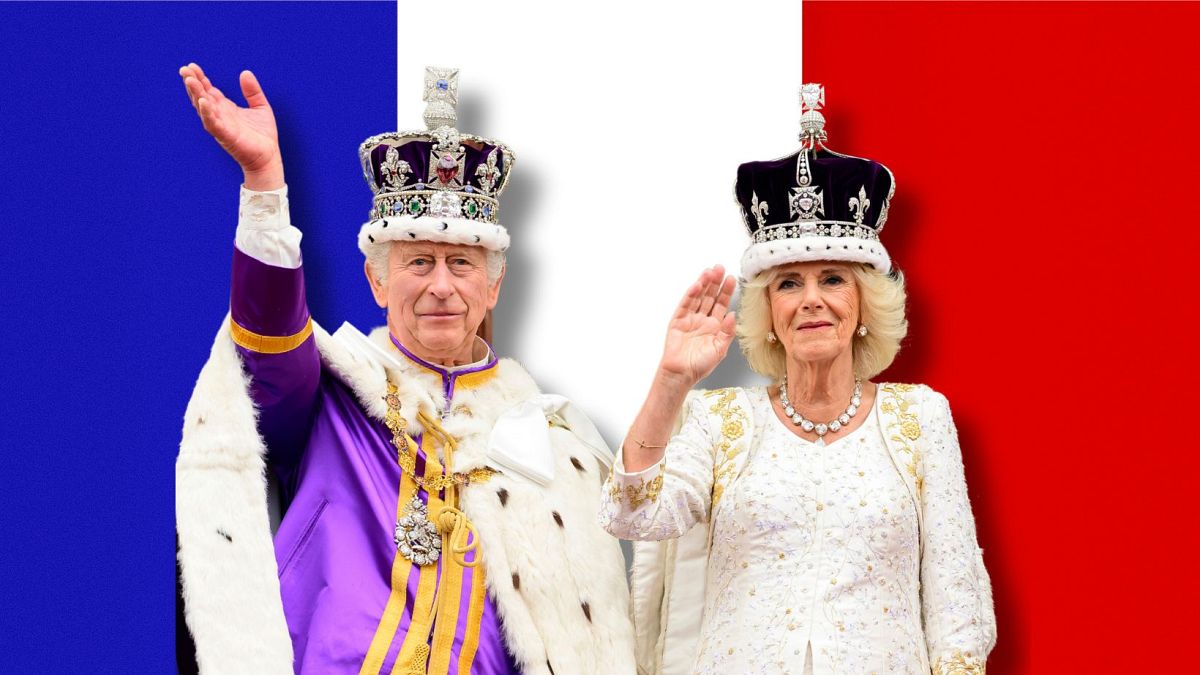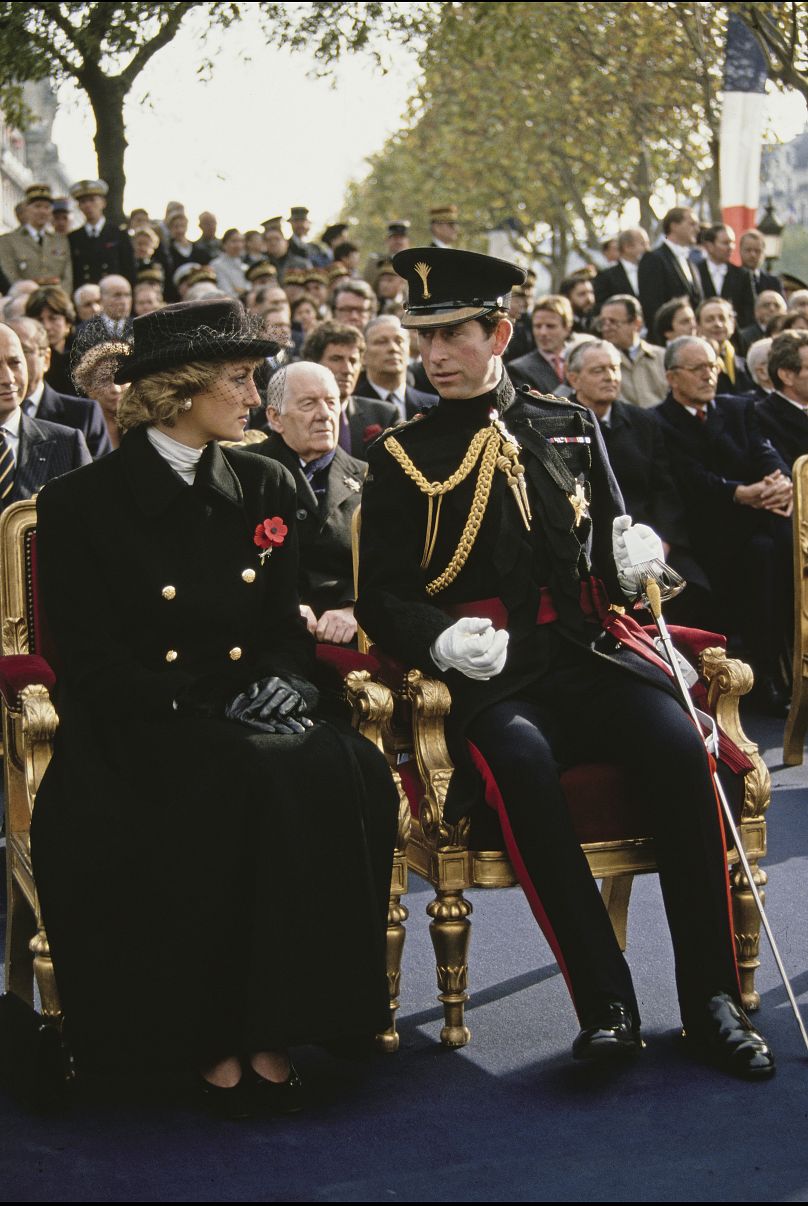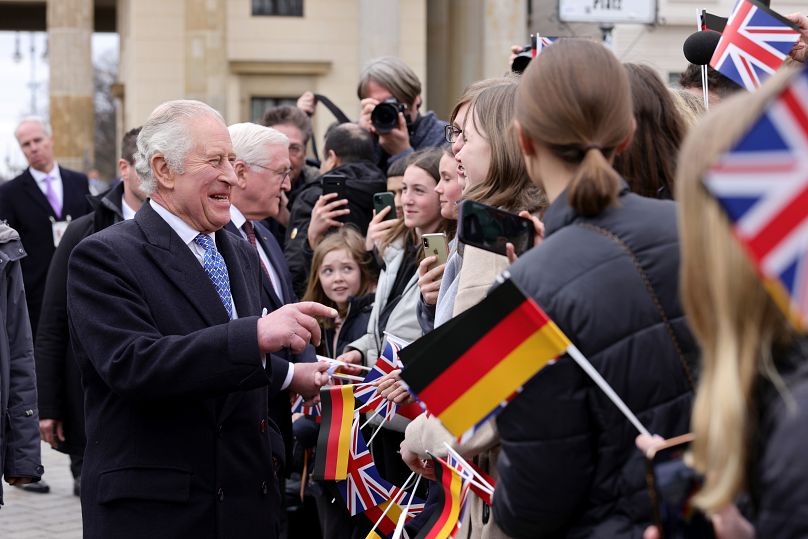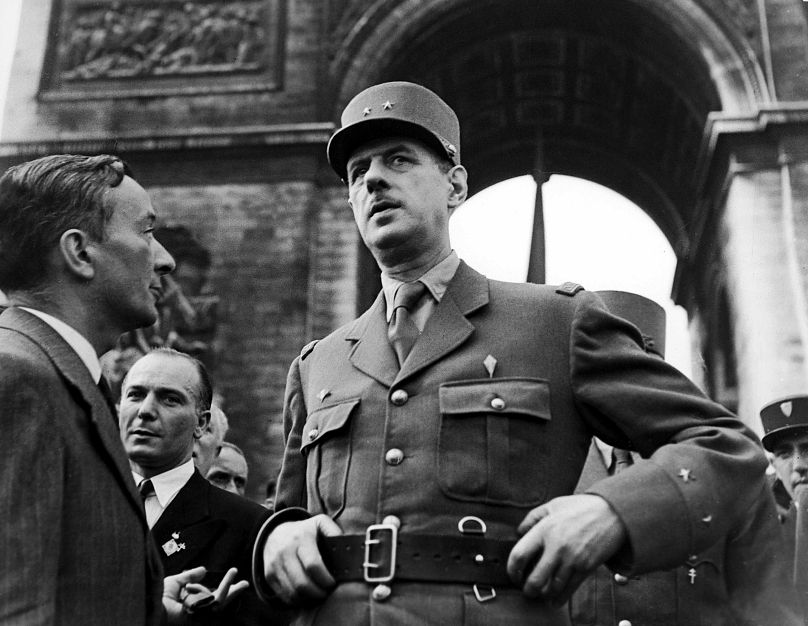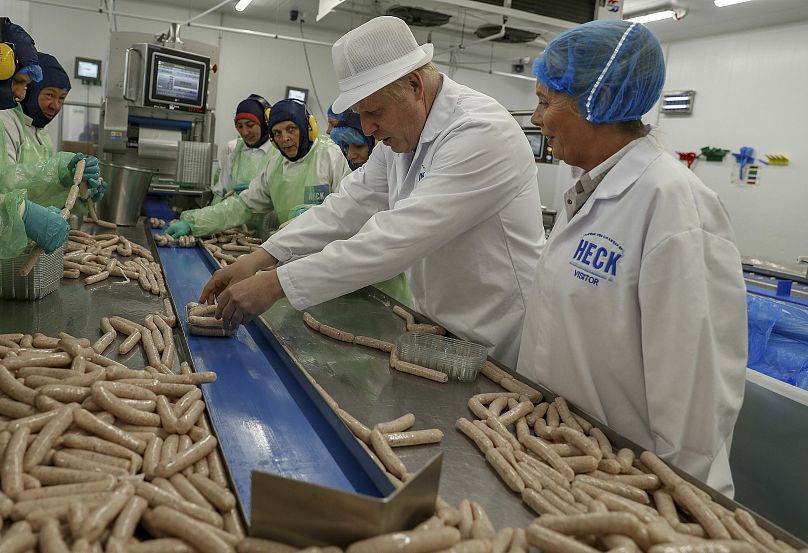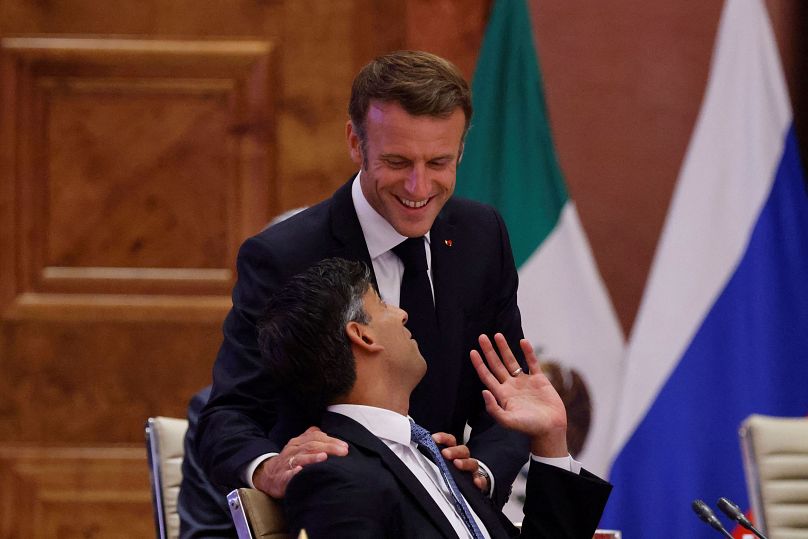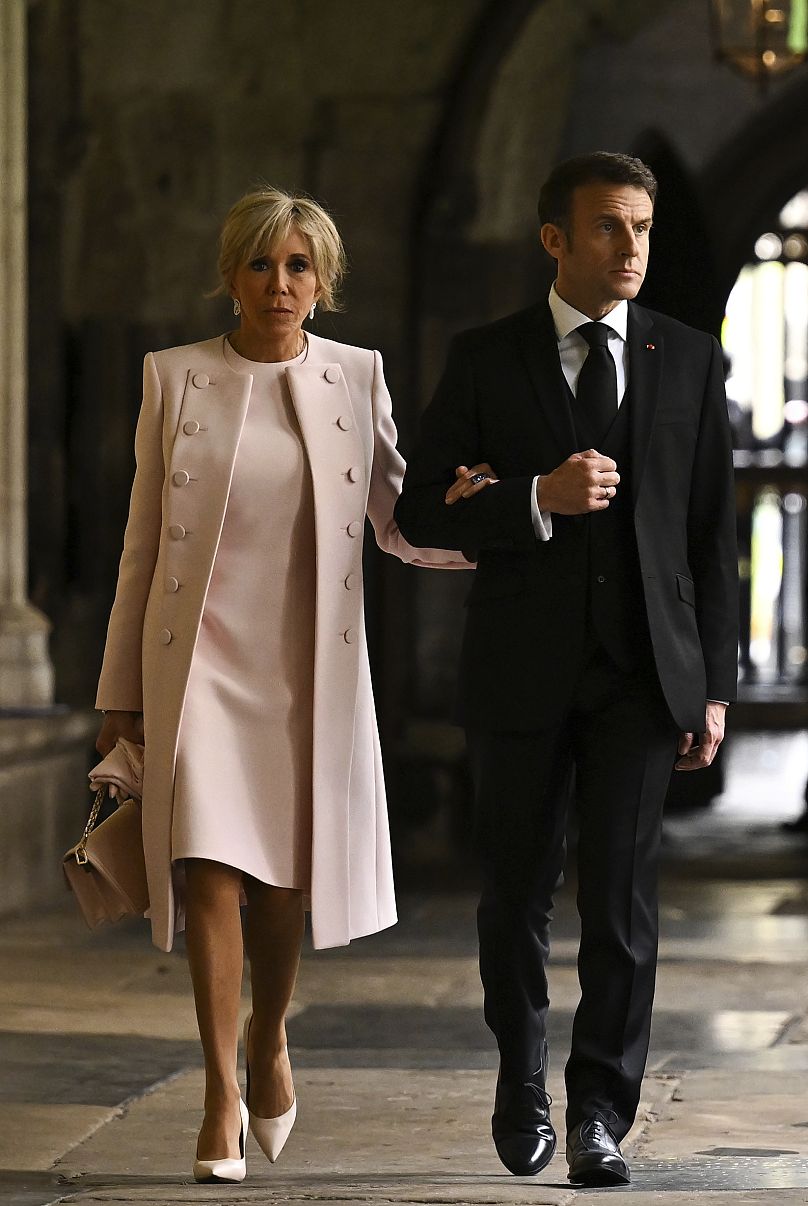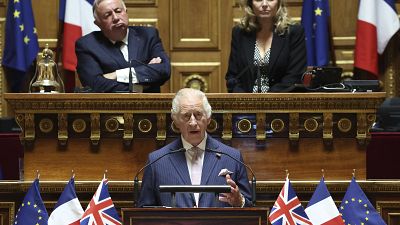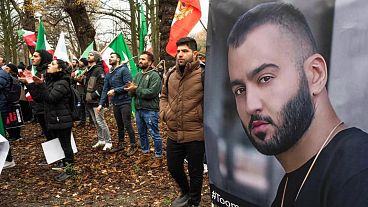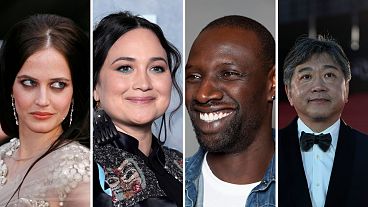King Charles kicks off his first state visit to France as British monarch. Can the trip help mend centuries-old rifts between the two nations?
Six months after France's pension reform protests derailed his original visit, Britain’s King Charles III is in Paris to begin a three-day state visit.
The originally-planned trip - which would have been the monarch’s first official visit abroad as King - was rescheduled due to clashes and riots over President Emmanuel Macron's pension reform.
The new royal tour will stick to much the same schedule as the one planned initially.
Charles will be joined by his 76-year-old wife, Queen Camilla, for a visit that's meant to strengthen strong symbolic commitments between the UK and France.
The royal couple will arrive in Paris on Wednesday where they’ll be met by French President Emmanuel Macron and his wife Brigitte at the Arc de Triomphe.
There, they will take part in a wreath laying ceremony before joining a procession down the Champs-Elysées, ending the day with a dinner of State at the Palace of Versailles, west of the capital.
Charles is also slated to give a speech to parliamentarians in the Senate.
It’s expected that he’ll speak partly in French, similar to his Berlin visit in March where he spoke in German.
While much of what Charles and President Macron will discuss is likely to be kept under wraps, the two are expected to address subjects that are mutually close to both their hearts, like the protection of the environment, encouraging an uptick in reading levels and youth entrepreneurship.
As part of Charles’ visit, the royal will also meet with local associations and sports figures in Saint-Denis, a Paris suburb that will serve as a major venue in next year's Summer Olympics.
After leaving Paris, Charles and Camilla will travel to Bordeaux, which was held by 12th Century English King Henry II - and is still home to some 39,000 Britons.
They'll visit a vineyard to meet firefighters who helped extinguish the massive wildfires that ravaged the Landes department last year.
A short history of British-French tensions
Although the meeting between Charles and Macron will likely be all smiles, there is a long tradition of conflict and distrust between England (and, latterly, all of the UK) and France.
There have been a staggering 41 wars between the two nations from the first Anglo-French War in 1109 until the Hundred Days in 1815.
During the French Revolutionary and Napoleonic Wars, fought from 1793 to 1815, coalitions of European powers - financed and usually led by England - fought a series of battles against both the French First Republic and the First French Empire.
Those wars culminated in Napoleon's defeat, and for decades afterwards there was an uneasy peace, with fear of French invasion in 1859 as well as a fierce rivalry over African colonies.
Since then, the relationship has been decidedly less frosty and friendly ties were forced between the two nations with the 1904 Entente Cordiale, which paved the way for a stronger relationship between France and Britain in the face of increasing German aggression.
In both World War I and World War II, the British and French were allied against Germany and in the Second World War, British armies helped to liberate occupied France from the Nazis.
The bond got closer still during the Cold War, with both countries’ governments supporting liberal democracy and capitalism.
France and the UK, too, were founding members of the North Atlantic Treaty Organisation (NATO) defence alliance - and both remain as permanent members of the UN Security Council.
In the 1960s, then-French President Charles de Gaulle rocked the diplomatic boat once more.
France had been a member of the European Union since its first iteration as the European Economic Community in 1957. The UK followed suit much later, joining in 1973.
In the 1960s, De Gaulle was known for his distrust over the ‘special relationship’ between the UK and the United States.
He continuously vetoed British entry into the European Communities, the predecessor organisation to the EU, and also chose to withdraw France from NATO integrated command - claiming that the alliance was too heavily dominated by the United States.
Following De Gaulle's death, though, the UK entered the European Communities and France returned to playing an active role in NATO.
Everything seemed to be going fairly swimmingly until Brexit.
The United Kingdom left the European Union on 31 January 2020, following a referendum held on 23 June 2016.
As a result, relations have deteriorated, with France accusing the UK of abandoning the bloc and leaving them in the financial lurch.
Verbal battles have been raging, too, over the ongoing English Channel migrant crisis.
The relationship was at its worst in modern times under former British Prime Minister Boris Johnson, who was a huge part of the Brexit process and a vocal critic of the EU and France’s role within it.
As premier, Johnson regularly attacked France on topics ranging from fishing quotas to commercial rules applied to sausages.
During her historically short tenure as Prime Minister, Johnson’s successor Liz Truss pulled no punches when asked about the relationship between the UK and France last year.
Truss famously said: "the jury is still out" when she was asked whether Emmanuel Macron was a friend or an enemy.
A modern harmony between France and the UK?
Since current British Prime Minister Rishi Sunak took over from ill-fated Truss last October, relations seemed to have improved between the two nations.
Downing Street’s new occupant has far more in common with Macron than Truss ever did.
Like the French president, he is a former investment banker, known for his short stature and love of sharp suits, as well as his relative youth and presence on social networks.
Despite their many disagreements over the centuries, France and Britain in the 21st century are perhaps more alike than either would care to admit.
In fact, they share many overlooked similarities - including roughly the same population, economic size, commitment to democracy and diplomatic clout.
Nevertheless, they’re still constantly referred to as "historic rivals," in terms of their perceived competition with one other.
French author José-Alain Fralon put it best when he characterised the relationship by describing the British as "our most dear enemies".
Today, it’s estimated that about 350,000 French people live in the UK, with approximately 200,000 Britons living in France.
Whatever King Charles’ personal thoughts on the French president and nation may be, what he can actually say out loud is very limited.
As the head of state of a constitutional monarchy, Charles must observe strict rules and, just over a year into his reign, his focus is still likely to be firmly on embodying the stability and continuity of the monarchy, rather than initiating any radical reforms or causing diplomatic upset.
Charles and Macron have actually met before - at the King's coronation in May. They are said to enjoy “a warm relationship,” which was built upon after Macron gave a heartfelt present to Charles in the wake of Queen Elizabeth’s death last September.
